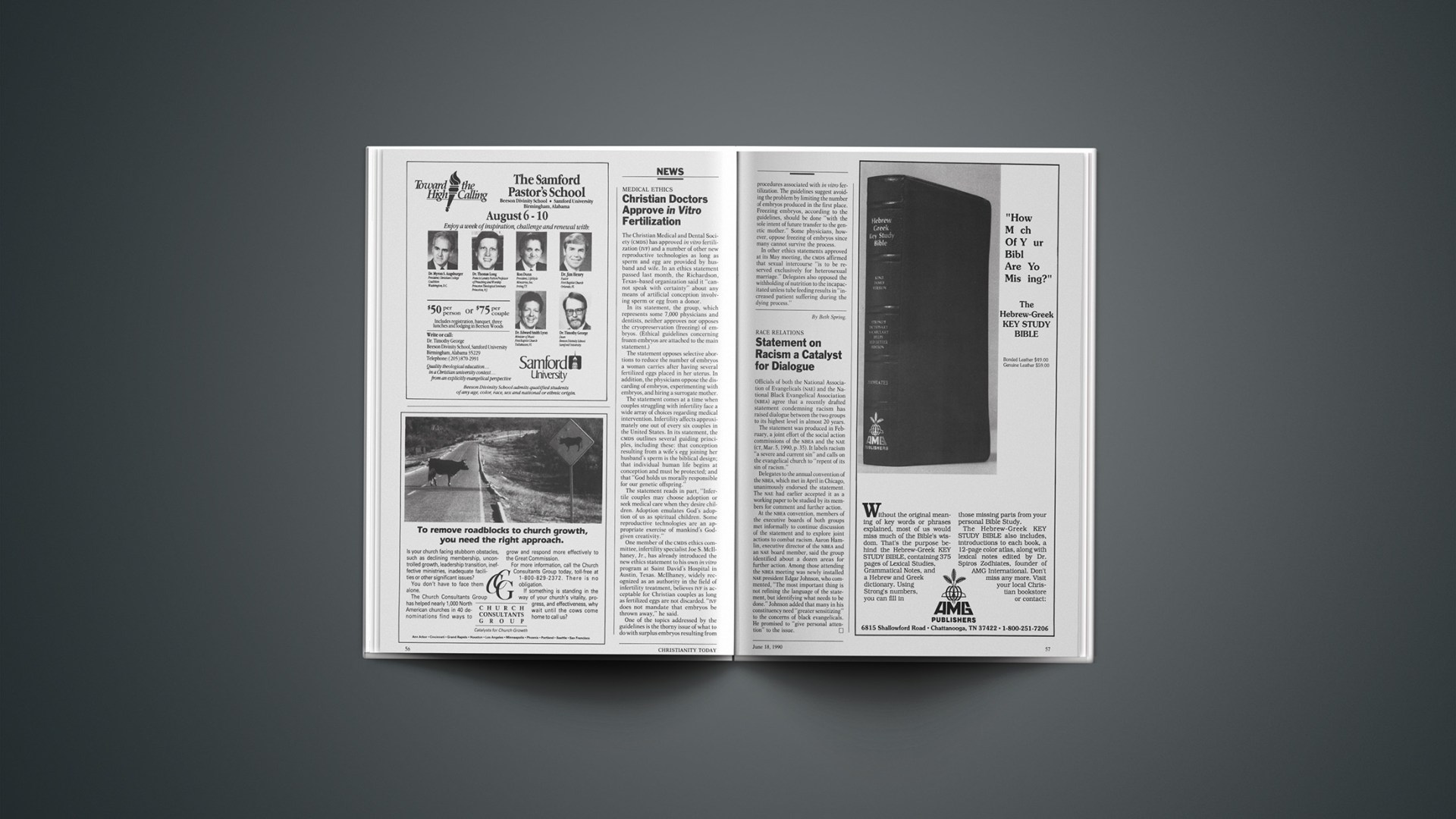The Christian Medical and Dental Society (CMDS) has approved in vitro fertilization (IVF) and a number of other new reproductive technologies as long as sperm and egg are provided by husband and wife. In an ethics statement passed last month, the Richardson, Texas-based organization said it “cannot speak with certainty” about any means of artificial conception involving sperm or egg from a donor.
In its statement, the group, which represents some 7,000 physicians and dentists, neither approves nor opposes the cryopreservation (freezing) of embryos. (Ethical guidelines concerning frozen embryos are attached to the main statement.)
The statement opposes selective abortions to reduce the number of embryos a woman carries after having several fertilized eggs placed in her uterus. In addition, the physicians oppose the discarding of embryos, experimenting with embryos, and hiring a surrogate mother.
The statement comes at a time when couples struggling with infertility face a wide array of choices regarding medical intervention. Infertility affects approximately one out of every six couples in the United States. In its statement, the CMDS outlines several guiding principles, including these: that conception resulting from a wife’s egg joining her husband’s sperm is the biblical design; that individual human life begins at conception and must be protected; and that “God holds us morally responsible for our genetic offspring.”
The statement reads in part, “Infertile couples may choose adoption or seek medical care when they desire children. Adoption emulates God’s adoption of us as spiritual children. Some reproductive technologies are an appropriate exercise of mankind’s God-given creativity.”
One member of the CMDS ethics committee, infertility specialist Joe S. McIlhaney, Jr., has already introduced the new ethics statement to his own in vitro program at Saint David’s Hospital in Austin, Texas. McIlhaney, widely recognized as an authority in the field of infertility treatment, believes IVF is acceptable for Christian couples as long as fertilized eggs are not discarded. “IVF does not mandate that embryos be thrown away,” he said.
One of the topics addressed by the guidelines is the thorny issue of what to do with surplus embryos resulting from procedures associated with in vitro fertilization. The guidelines suggest avoiding the problem by limiting the number of embryos produced in the first place. Freezing embryos, according to the guidelines, should be done “with the sole intent of future transfer to the genetic mother.” Some physicians, however, oppose freezing of embryos since many cannot survive the process.
In other ethics statements approved at its May meeting, the CMDS affirmed that sexual intercourse “is to be reserved exclusively for heterosexual marriage.” Delegates also opposed the withholding of nutrition to the incapacitated unless tube feeding results in “increased patient suffering during the dying process.”
By Beth Spring.










